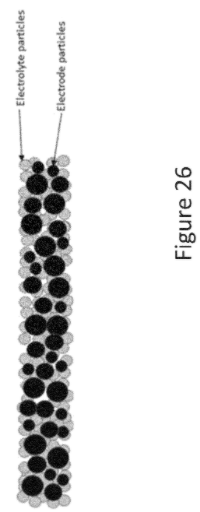Everybody is talking about QuantumScape lately, so let& #39;s have at it. QuantumScape is a company previously formed to develop an "all-electron battery"; on the failure of that concept, they jumped onto the Solid State battery train. VW is a major investor, & JB is on the board.
I& #39;ve generally been a solid-state pessimist for a number of reasons. To reiterate:
1) You& #39;re trying to transfer ions through a fixed crystalline or amorphous solid as comparable rates vs. through a liquid, which is a tall order indeed.
1) You& #39;re trying to transfer ions through a fixed crystalline or amorphous solid as comparable rates vs. through a liquid, which is a tall order indeed.
2) You& #39;re no longer fully wetting your electrodes - mainly of concern in the cathodes, since most solid state companies are pushing toward Li-metal anodes. If you want to wet them (composite cathode), you need to blend in solid state particles, at significant mass penalty.
3) The supposed gains are not "all that". Yes, lithium metal offers a far higher anode density, but anode mass is only a fraction of a cell& #39;s mass. Furthermore, li-metal isn& #39;t that much more energy dense than nearer-term anodes, like high-Si.
4) The premise is that solid electrolytes are more resistant to dendrite puncture (resistant? usually, but not always immune), and that this is the key barrier to metal anodes. But it& #39;s just one issue. Poor quantum efficiency (leading to anode-side Li loss) is a greater one.
5) Other techniques with liquid electrolytes are also showing major progress toward metal anodes, such as the elimination of ethylene carbonate, substituting artificial SEIs for ones passively created by electrolyte interaction.
But because JB Straubel is on the board, it deserves a closer look at one of their patents.
https://patents.google.com/patent/US10403931B2/en
In">https://patents.google.com/patent/US... it, we see that their solid-state electrolytes are various forms of "lithium-stuffed garnets", of the form LixLa3Zr2O12.yAl2O3 (x=5.5-9; y=0-1)
https://patents.google.com/patent/US10403931B2/en
In">https://patents.google.com/patent/US... it, we see that their solid-state electrolytes are various forms of "lithium-stuffed garnets", of the form LixLa3Zr2O12.yAl2O3 (x=5.5-9; y=0-1)
All issues of "how well their tech actually works as a battery" aside - which without better infomation is hard to comment on - this implies that their raw material mix is about 20% zirconia, which in large bulk scales is about $20/kg (3 times the cost of cobalt sulfate).
Remember that if they want to wet the cathode, the solid electrolyte not only must function as a separator membrane, but likewise be scattered throughout the cathode. Indeed, QuantumScape& #39;s patents show this.
Note that the above price of $20/kg assumes that they do not need a special high-purity grade. Note also that that the rest of the composition of their electrolyte is not exactly dirt-cheap either - 55% is (optionally yttrium doped) lanthanum oxide.
Thickness unknown.
Thickness unknown.
Again, I cannot comment about how well their technology actually functions, and their patents are often so broad as to be useless in many regards (for example, their cathode compositions cover the gamut all the way to even Li-Air). But I can say this: beyond the standard...
solid state issues, the race for mass-market vehicle electrification is not about density, but about *cost*. It is cost that is the primary limiting factor of how much battery capacity can be added. Beyond that, *power* is a primary limit - not for accel, but for charge speed.
Charging of a li-ion battery is about moving lithium ions from a cathode - today, rapidly flowing through liquids, but in this scenario, diffusing through crystals. And lastly, it& #39;s about cycle life - which historically for li-metal anodes, has been poor indeed.

 Read on Twitter
Read on Twitter


